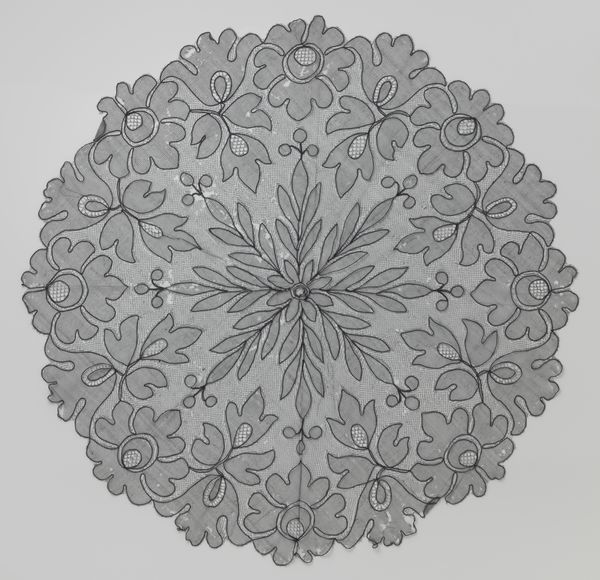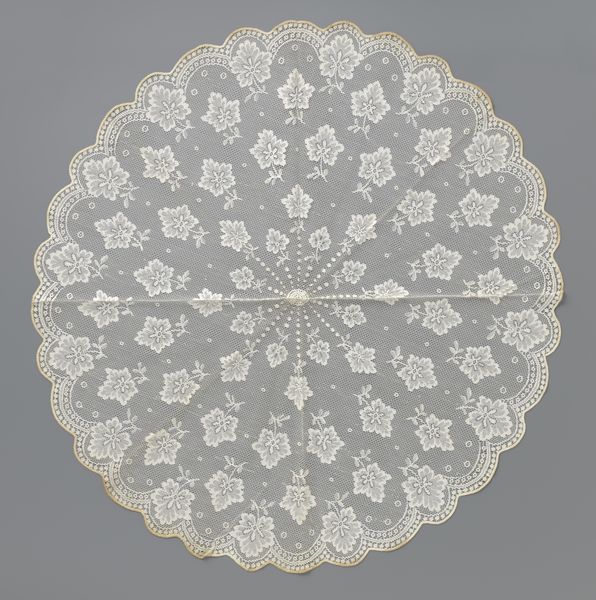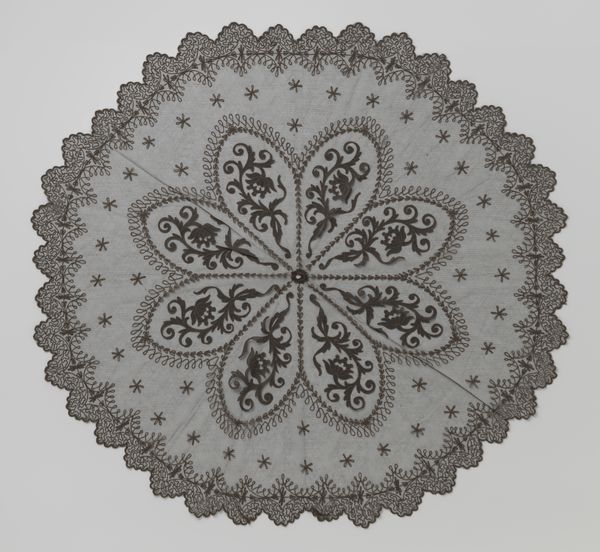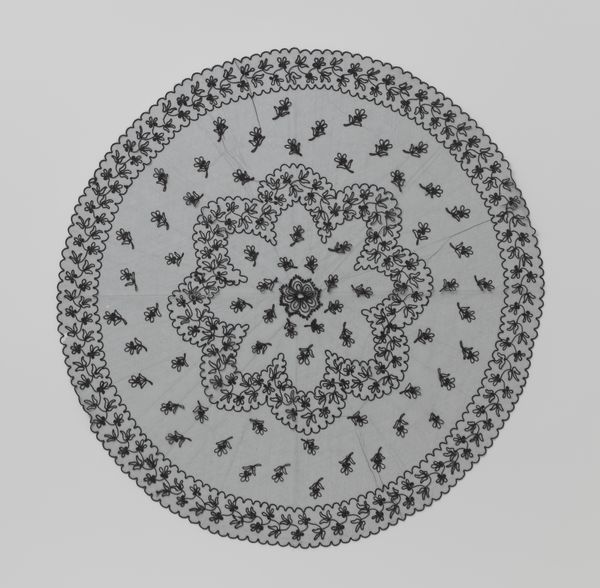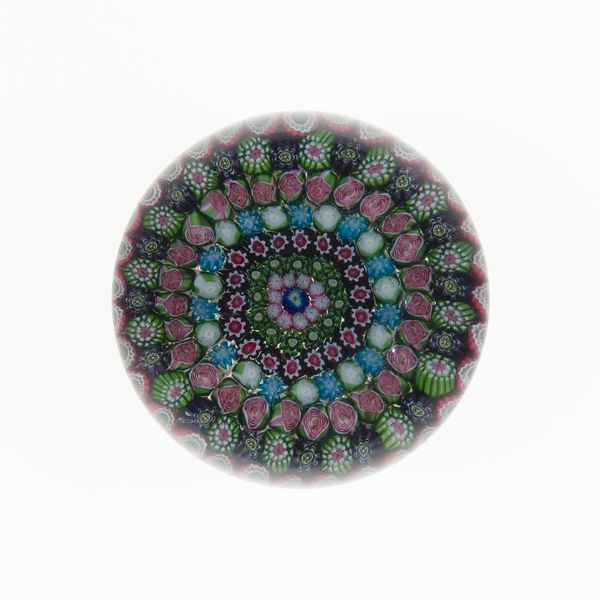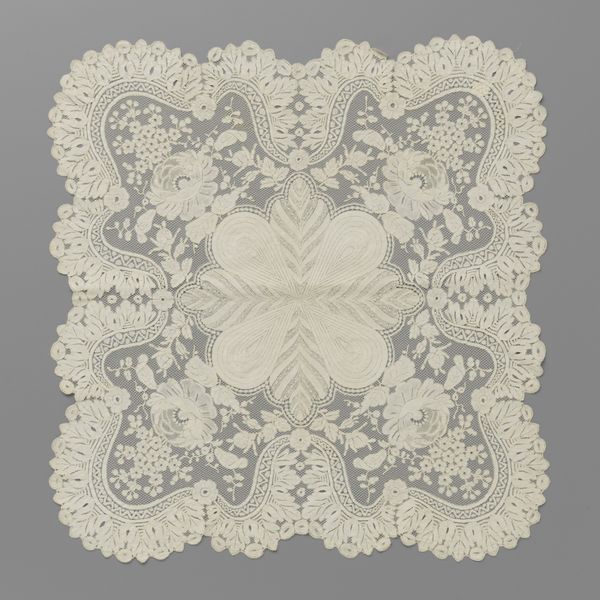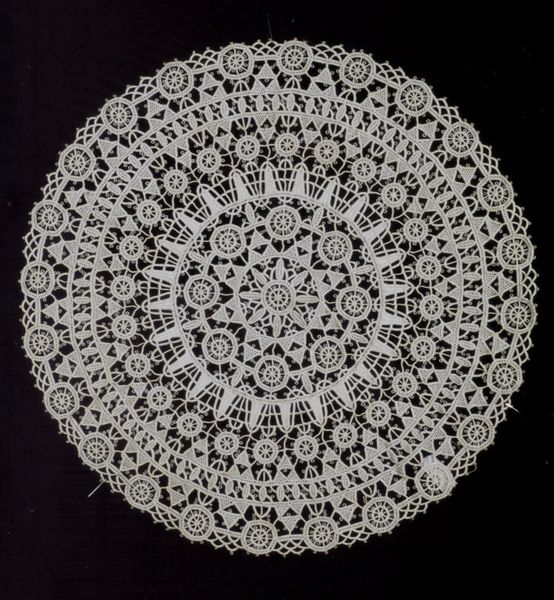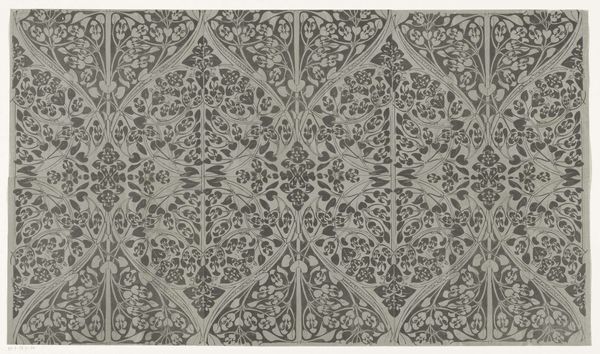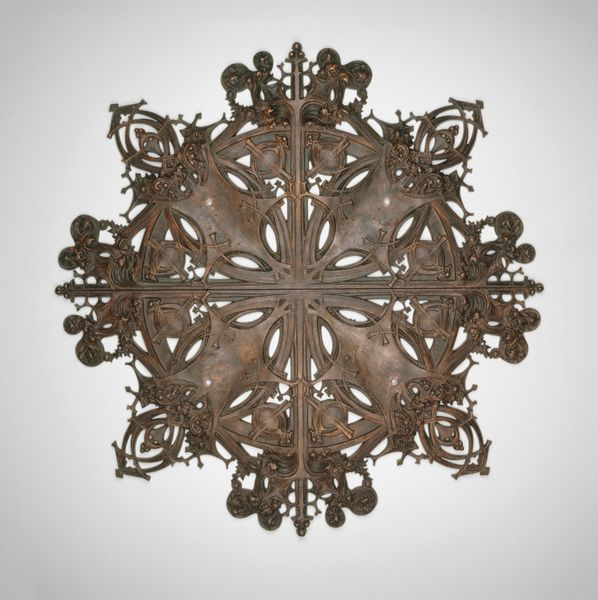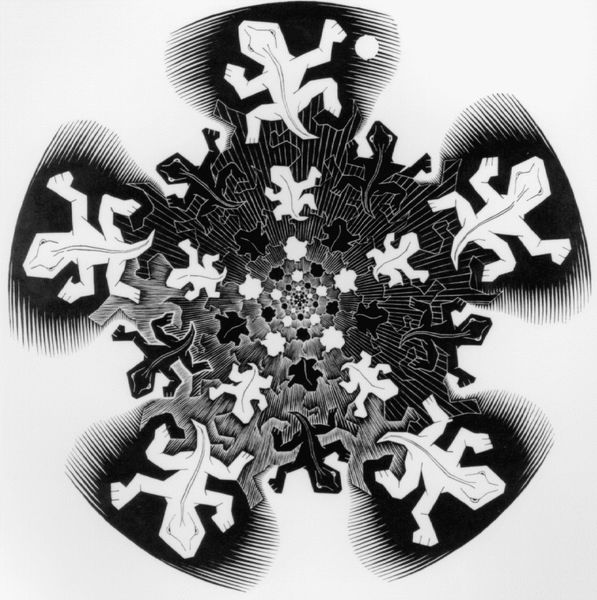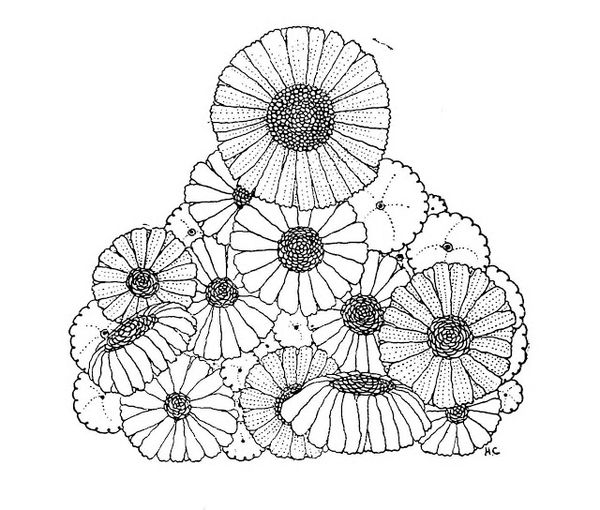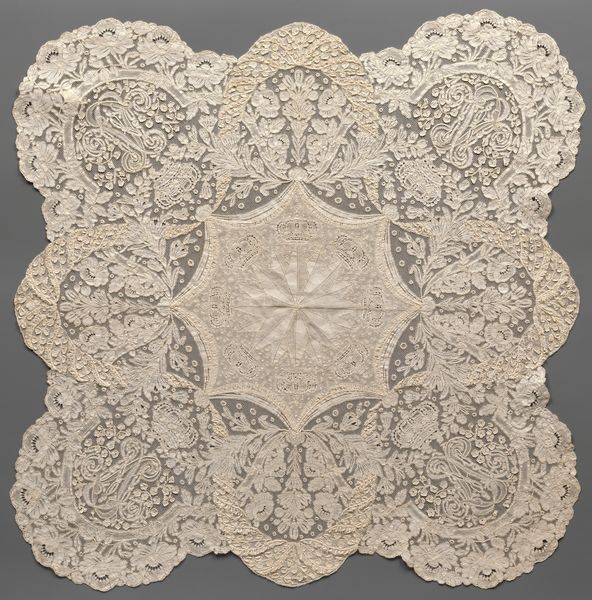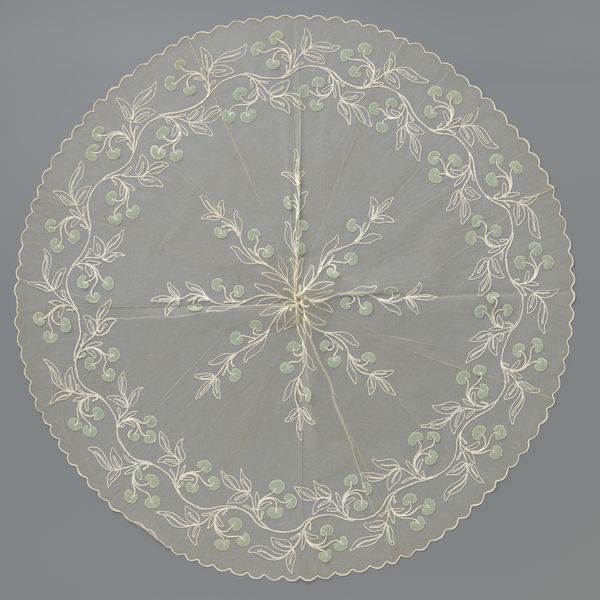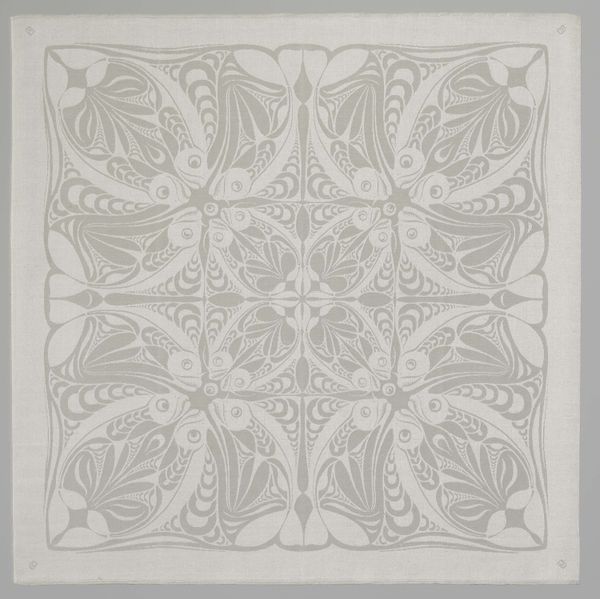
Parasoldek van zwart veterkant, versierd met een bloem en acht hangende bladpalmetten; de tussenruimtes bestaan uit siersteken c. 1875 - 1900
0:00
0:00
gustavschnitzler
Rijksmuseum
fibre-art, textile
#
natural stone pattern
#
fibre-art
#
naturalistic pattern
#
textile
#
intimism
#
organic pattern
#
flower pattern
#
repetition of pattern
#
intricate pattern
#
pattern repetition
#
decorative-art
#
layered pattern
#
combined pattern
#
intricate and detailed
Copyright: Rijks Museum: Open Domain
Editor: Here we have a parasol cover from around 1875-1900, crafted from black lace and embellished with flowers and hanging palmettes. The pattern is quite intricate; it makes me think of doilies my grandmother used to make. How would you interpret this piece? Curator: This lace isn't simply decorative. Think of lace making itself, and its long and complex history. Lace embodies a network of meanings tied to wealth, status, and even, surprisingly, labor. A parasol, of course, symbolizes protection from the sun. But this black lace parasol, evokes something more than protection – almost a delicate, goth aesthetic, or perhaps mourning. The floral and palmette motifs, repeated meticulously, reinforce that Victorian love of cataloging and controlling the natural world through representation. Editor: That's fascinating. I never considered lace in terms of labor before, but that makes sense! Is the black lace significant beyond just aesthetics? Curator: Absolutely. Black lace could indicate mourning, a widespread practice during the Victorian era, or it could signal a certain avant-garde sensibility. It subverts the expected daintiness, hinting at something more mysterious or perhaps rebellious. Does the density of the pattern give you any impressions? Editor: Now that you mention it, it feels almost overwhelming, that intricate repetition. It's beautiful, but intense. I'm seeing those complex emotions from that era in a totally different way. Curator: Exactly! It shows how a seemingly simple object like lace can be a powerful vehicle for complex emotions and cultural values. A reminder that even beauty can hold shadows. Editor: That’s amazing, thinking about an object carrying so much symbolic weight just beneath the surface. I will never look at lace the same way again!
Comments
No comments
Be the first to comment and join the conversation on the ultimate creative platform.
